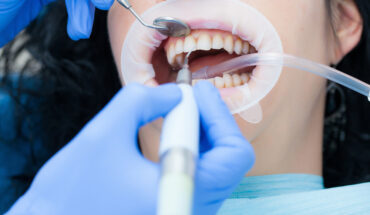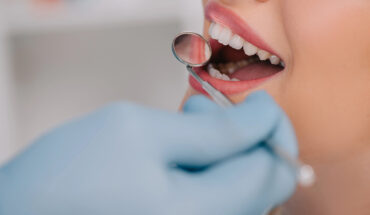
Orthodontic treatment is often associated with the pursuit of a perfect smile, but its benefits extend far beyond aesthetics. Properly aligned teeth contribute significantly to long-term oral health, reducing the risk of various dental issues and enhancing overall well-being. Understanding the broader impacts of orthodontics to treat oral health is crucial for anyone seeking to maintain optimal oral hygiene and prevent future complications.
Understanding Orthodontics and Oral Health
Orthodontics is a specialized field of dentistry focused on diagnosing, preventing, and correcting malocclusions (misaligned bites) and irregularities in teeth and jaw structure. While many people pursue orthodontic treatment to enhance their smile, the true value of these interventions lies in their ability to promote and preserve oral health
Malocclusions and misaligned teeth can create numerous challenges for maintaining good oral hygiene. Crooked or crowded teeth make it difficult to clean all surfaces effectively, increasing the risk of plaque buildup, cavities, and gum disease. Additionally, an improper bite can lead to excessive wear on certain teeth, causing fractures, enamel erosion, and even tooth loss. Orthodontic treatment addresses these issues by guiding teeth into their correct positions, ensuring a more balanced and healthier mouth.
Preventing Tooth Decay and Gum Disease
One of the most significant ways orthodontic treatment improves long-term oral health is by making it easier to maintain proper dental hygiene. When teeth are aligned correctly, brushing and flossing become more effective. Straight teeth are less likely to trap food particles and bacteria, reducing the likelihood of plaque formation. Plaque is a sticky film of bacteria that can lead to tooth decay and gum disease if not removed regularly.
Misaligned teeth can create spaces that are difficult to clean, allowing plaque to accumulate in hard-to-reach areas. Over time, this can result in cavities and periodontal (gum) disease. Orthodontics to treat oral health focuses on eliminating these problem areas by straightening the teeth, closing gaps, and ensuring that all surfaces are accessible for cleaning. As a result, individuals who undergo orthodontic treatment often experience a significant reduction in their risk of developing cavities and gum disease.
Protecting Against Tooth Wear and Damage
An improper bite, or malocclusion, can cause uneven pressure on the teeth, leading to excessive wear and tear. For example, if the upper and lower teeth do not align correctly, some teeth may bear more force during chewing. This can result in chipped, cracked, or worn-down teeth over time. Additionally, teeth that are not properly aligned are more susceptible to injury, especially during activities like sports.
Orthodontic treatment helps distribute biting forces evenly across all teeth, reducing the risk of damage. By correcting the alignment of the teeth and jaws, orthodontics ensures that each tooth functions as it should, minimizing the chances of wear-related problems and the need for restorative dental work in the future.
The Role of Early Intervention
Early orthodontic intervention can be particularly effective in preventing future oral health issues. Children and adolescents are often ideal candidates for orthodontic treatment because their bones are still growing, making it easier to guide teeth into their correct positions. Early treatment can address problems like crowding, misaligned bites, and jaw irregularities before they become more severe.
However, adults can also benefit from orthodontics to treat oral health. Advances in orthodontic technology, such as clear aligners and less visible braces, have made treatment more accessible and appealing to people of all ages. Whether you’re a teenager or an adult, seeking orthodontic care can set you on the path to a lifetime of optimal oral health.
Enhancing Jaw Health and Function
Beyond the teeth, orthodontic treatment also plays a critical role in promoting healthy jaw function. Malocclusions can contribute to jaw pain, temporomandibular joint (TMJ) disorders, and even headaches. When the bite is not properly aligned, the muscles and joints of the jaw are forced to work harder, leading to strain and discomfort.
By correcting bite issues, orthodontics can alleviate these symptoms and prevent the development of more serious conditions. A well-aligned bite allows the jaw to function smoothly and efficiently, reducing the risk of TMJ disorders and associated pain. This improvement in jaw health is another key benefit of orthodontic treatment, contributing to long-term oral health and overall well-being.
A Guide to Optimal Oral Health Through Orthodontics
To achieve the full benefits of orthodontic treatment, it’s essential to maintain a commitment to oral hygiene and follow the guidance of your orthodontist. Here is a simple guide to optimal oral health during and after orthodontic treatment:
1. Brush and Floss Regularly: Brushing at least twice a day and flossing daily are fundamental to keeping your teeth and gums healthy, especially when wearing braces or aligners.
2. Use Orthodontic Tools: Special tools like interdental brushes and floss threaders can help clean around braces and wires effectively.
3. Attend Regular Check-ups: Regular visits to your orthodontist and dentist ensure that your treatment is progressing as planned and that your oral health is maintained throughout the process.
4. Follow Dietary Recommendations: Avoiding hard, sticky, or sugary foods can prevent damage to orthodontic appliances and reduce the risk of cavities.
5. Wear Retainers as Prescribed: After the active phase of orthodontic treatment, wearing retainers is crucial to maintaining the new alignment of your teeth and preventing relapse.
Orthodontic treatment is a powerful tool not only for achieving a beautiful smile but also for improving long-term oral health. By addressing malocclusions, misaligned teeth, and bite issues, orthodontics to treat oral health can prevent tooth decay, gum disease, and other dental problems. Whether through early intervention or treatment later in life, orthodontics provides a pathway to a healthier, more functional, and more attractive smile, ensuring that your oral health is preserved for years to come.




